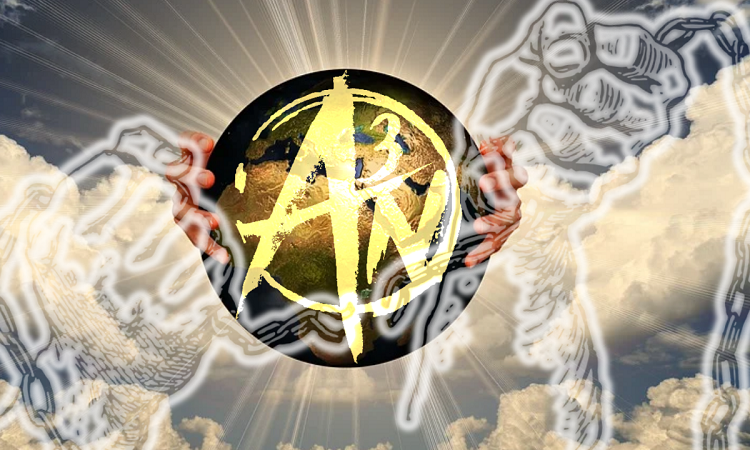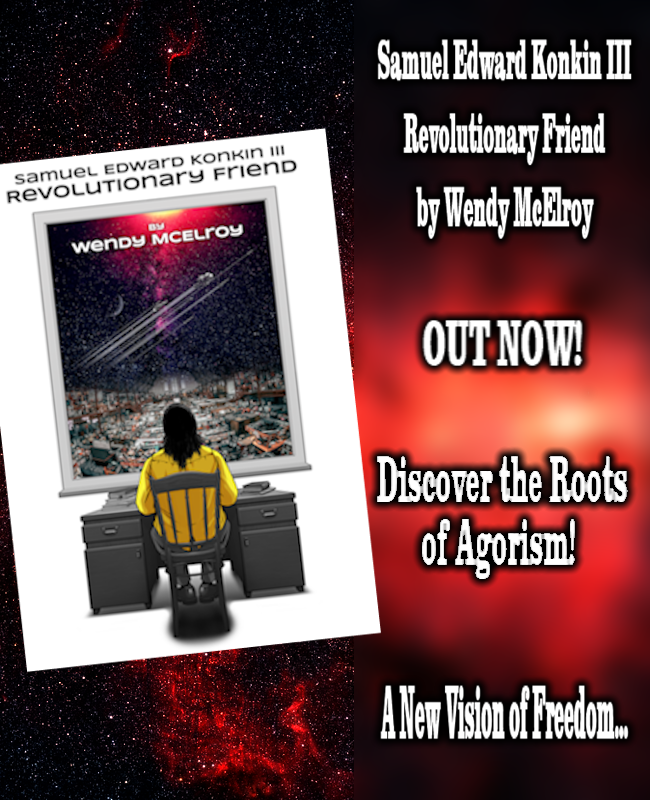
The True Value of Freedom
What is freedom? Is a question that all philosophers have to ask themselves if they want to achieve a true understanding of the human condition. But it is also a question that any individual has to ask if he or she wants to achieve any sort of self-determination.
What is freedom? How do we understand freedom? How do we build freedom as a cultural value and as a tenet for life?
Throughout the ages, different cultures have tried to solve the problem of freedom, for freedom has been a problem indeed. A problem that most cultures have tried to integrate into their way of life. A standard to develop a foundation for a social structure: like family, tribe, and state. But such standards have never been the same.
If we look into the modern definition of the concept of freedom, the power or right to act, speak, or think as one wants without hindrance or restraint, we see already that the concept of freedom exists in opposition to an external force that acts as a boundary, a limit. And we can see three concepts already embedded within: power, right, want.
What is power? Power as an ability to act or produce an effect. Capacity. Energy.
What is want? Desire. Drive. ? Wish. Need. Compulsión.
What is right? Being in accordance with what is just, good, or proper. What is good? What is just?
You see, all these different values, these different aspects embedded within the concept of freedom can be considered inherently arbitrary. Because they are only tools to measure reality, and the problem with reality is that it is subject to both space, time, and the subject that lives within it.
Now, I know there exists a huge advocacy within the anarchist community for so-called natural law. This is totally valid as an ideological standpoint: in one way or another, most ideologues need a moral fundamental to deem their cause necessary, or akin to a sense of justice. However, this standpoint stems from a purely religious premise: that the laws of nature alone apply to the configuration of morality, leaving people, if that is, individual drives and collective behavior aside.
The problem with nature is that, in truth, we don’t know it; we are in the process of knowing it, we are understanding it gradually, both the nature of the universe and ourselves. It unfolds its secrets as we acquire more sophistication in our process of cognition. You see? That’s the foundation of science: observation, hypothesis, trial and error. So, we must not confuse hypothetical standpoints with dogma.
In the formulation of different ideological perspectives, there has also been the formulation of political doctrines that have conspired in the formulation of socio-political structures.
There have been different regimes throughout history. Now they call them “social experiments.. Like socialism, for example. Many call it the Leviathan of our times, the Antichrist. The most ruthless social imprint of humanity: the totalitarian state. Socialists call that “Capitalism,” though, how is that different? Anarcho-capitalists view it as the ideal of humanity. Anarcho-communists see it as the Devil on Earth. How do they differ? How are they wrong?
There have been other societal formations. Like Feudalism in Medieval Europe, like Theocracy in Ancient Egypt and Mexico, like Democracy in Greece, like the Republic in Rome, and later the Empire. And, in theory, they are all states. But what is a state? By some standards the boundaries of a state can be measured by the existence of a police force, or an army and a bureaucratic class. If that is: a state is any system of coercion.
However, theocracy, for example, relies on the armed force only to support some aspects of its power, not all of them. For a theocracy to exist, there needs to be a powerful ideology. That way its subjects function not through coercion but from an apparent free will that is completely influenced by the cosmovision of the ruling class, which is fed to its population through propaganda. In Mexico, it was like this: priest kings would have complete rule over city states and the hierarchies would be rigid, peasants would live and die under one rule and there would be little to no mobility between classes, and tributation would be compulsory, yet voluntary, because it was embedded in their religion.
Another example: democracy. In ancient Greece, only the male population of a given class were allowed to decide the course of a city state. They were not allowed however to interfere with the Oracle, nor its religious duties. The armed forces were, somehow, in hands of the wealthy, who were also patrons of the general population, so the wars waged between them were a product of general consensus of the upper class and not unilateral decisions from a leader, or king.
Let us take, for example, the tribe. Certainly, it is not a stratified structure like the ones that built Egypt or Rome, far larger and far more violent than, let’s say, the societies of the Amazons in South America, but it is a structure none the less, it is a hierarchy. And the problem with hierarchies is that the principle that forms them is inherently violent.
But what is violence? For a long time, the modern trend has been all about being non-violent, non-aggressive, limiting all points of view and perspectives of violence to a single condition: that harm and transgression are the only factors to define violence. However, the concept is far wider. Violence is latin for “force in abundance.” Life itself, in all its aspects, is inherently violent. It requires force in order to thrive; it grows and propagates by accumulating power. It is the decrease of power that leads to decay, to disease. Death is simply the cessation of force. And this is why life is inherently hierarchical; it cannot develop without a certain order of progression based on the faculties of adaptability.
Anarchy does not mean “without rules,” but does it really mean “without rulers”? Any given society needs hierarchies to function, and these hierarchies require higher types. And the higher types are defined by competence, which is ultimately embodied by men and women. These men and women certainly do not need to force anyone into their own designs, but any given social structure relies on their competence in order to thrive.
There is a more logical concept that is relatively recent: the concept of Agorism. A social philosophy that advocates for a voluntary society in which all relations, all exchanges between people facilitate a nonviolent revolution, if that is: counter-economics. It stems from the Agora, the original public forum of the Greeks, where markets, politicians, and philosophers would meet alike. Agorism stands as a political ideology that seeks the consolidation of a free society from the boundaries of the state and the oppression that it entwines. It has its roots in both the laissez-faire and the theory of market socialism, which goes way beyond the cultural clichés of socialism and capitalism used by the vast majority of ideologues.
The goal of agorism is the agora. The society of the open marketplace as near to untainted by theft, assault, and fraud as can be humanly attained. And a free society is the only one in which each and every one of us can satisfy his or her subjective values without crushing others’ values by violence and coercion. This is as close to a free society as can be achieved.
However, freedom in its purest form, I find it in a very ancient concept called apeiron. It literally means “boundless, unlimited.” It originated in Greek Anatolia where countless sages would have contact with the philosophies of the orient, such as Hinduism. Apeiron is the source of all things and all things go back to it. Apeiron has two principles: phobos or fear, and eros or love. Phobos is the drive of life, for life strives to distinguish itself from all things, it has a drive to grow and to be separate, to be unique. Eros is the drive of death, for death strives to become part of all things, to be indistinguishable from the whole. It is a drive of communion with the unity of the world.
Man, in this perspective, is a product of both drives. For one he tries to make distinctions into the world through logic, and for the other he longs for the commodities of the womb, a connection to the earth.
Freedom is far more elemental than any theory of morality tries to make of it. It is rather a condition that serves willpower and conscience, a condition of being. So how do you define the extent of your freedom? And what are the prospects for acquiring it? What can you gain with it? To put it simply in a Nietzschean way:
Free, do you call yourself? Your ruling thought would I hear of, and not that you have escaped from a yoke.
Are you one entitled to escape from a yoke? Many a one has cast away his final worth when he has cast away his servitude.
Free from what? What does that matter to me! Clearly, however, shall your eye show to me: free for what?
Can you give to yourself your bad and your good, and set up your will as a law over you? Can you be judge for yourself, and avenger of your law?
Terrible is aloneness with the judge and avenger of one’s own law.
Thus is a star projected into desert space, and into the icy breath of aloneness.
To-day suffer you still from the multitude, you individual; to-day have you still your courage unabated, and your hopes.
But one day will the solitude weary you; one day will your pride yield, and your courage quail. You will one day cry: “I am alone!”
For freedom, in it’s true value, is void. And it’s neither a curse or a blessing, but a necessary condition for life.







